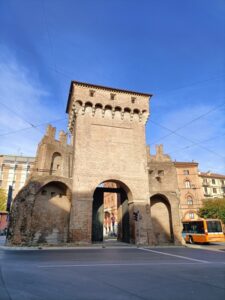
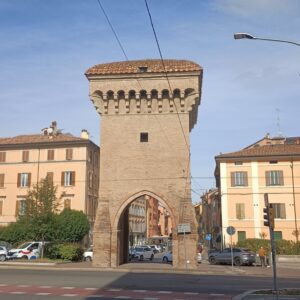
Bologna, in the region of Emilia-Romagna, lies on the southern edge of the Po Basin in the north of Italia. Other than for the Bolognese sauce which in Bologna, is never served on spaghetti, it is less famous than many other Italian cities.

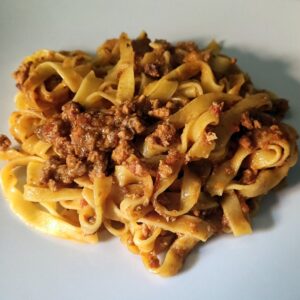
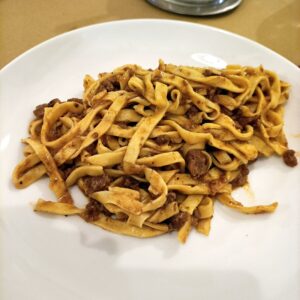
The two main adjacent sites in the heart of the city, Le due Torri (the twin towers) and Piazza Maggiore are not exactly overwhelming. Many of the churches, including Basilica di San Petronio appear to be unfinished such is the brickwork.
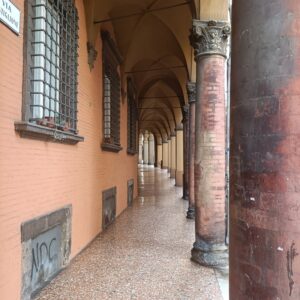
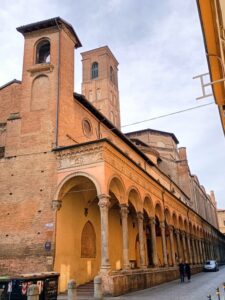
What makes Bologna memorable are the endless portico lined streets, one wonders why this did not become the standard architecture in the west of Scotland.
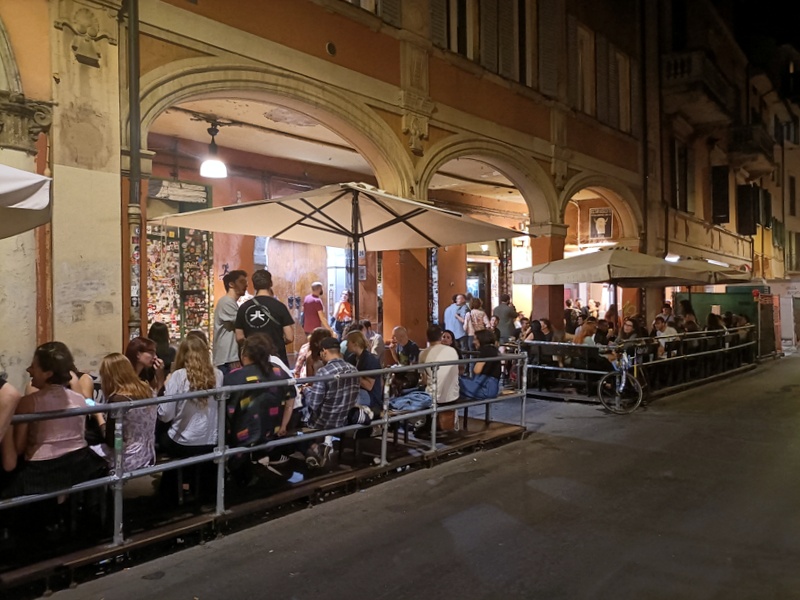 Providing shade in the summer and shelter in the mild, and not so wet winters, the colonnades permit the small cafes and bars to spill outside throughout the year. Not content with this, some bars have further seating on the street itself.
Providing shade in the summer and shelter in the mild, and not so wet winters, the colonnades permit the small cafes and bars to spill outside throughout the year. Not content with this, some bars have further seating on the street itself.
It is perhaps the charm of these lines of arches which makes Bologna memorable.
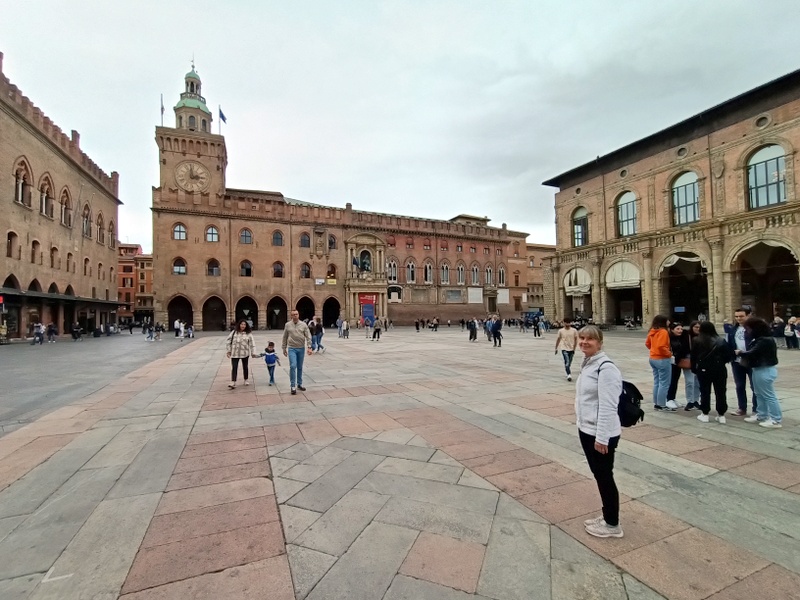
Piazza Maggiore
Arriving in Bologna
The airport lies some ten kilometres to the north west of the city. The relatively expensive (€11.00 in 2023) Marconi Express train whisks one to Bologna Centrale which lies on the northern extremity of the original walled city. The major sights are therefore a ten minute walk south from here. If two or more are travelling, take a taxi from the airport, save money!
The Bus Station lies to the east of the train station adjacent to Parco della Montagnola. Long distance buses e.g. FlixBus, use this terminus. Via dell’Indipendenza connects the bus and train stations to the historical centre.
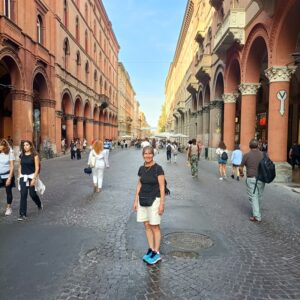
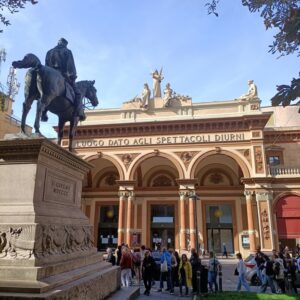
With no metro or trams, trolley buses are a feature of Bologna. Such is the size of the mediaeval core, it is unlikely one will need to use public transport. Twenty four hour tickets are available from newsagent stands.
Le due Torri: Garisende e degli Asinelli
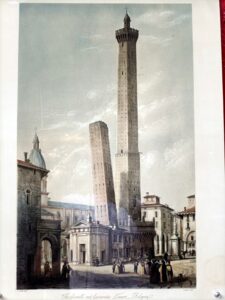
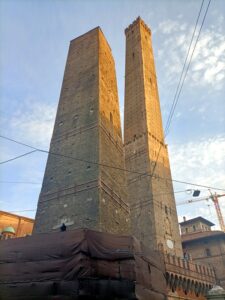
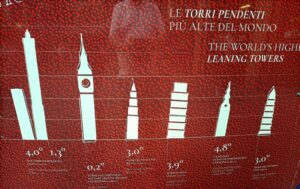 Yes, one can climb the stairs of Garisende, the taller of the twelfth century twin towers, and see the remaining towers which once made Bologna famous. Asinelli, the lesser tower, was lowered due its instability. Pisa may have the most famous – leaning tower – however, Asinelli it tilted by 0.1º more than its Pisa counterpart.
Yes, one can climb the stairs of Garisende, the taller of the twelfth century twin towers, and see the remaining towers which once made Bologna famous. Asinelli, the lesser tower, was lowered due its instability. Pisa may have the most famous – leaning tower – however, Asinelli it tilted by 0.1º more than its Pisa counterpart.
Parco della Montagnola
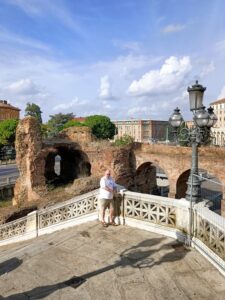
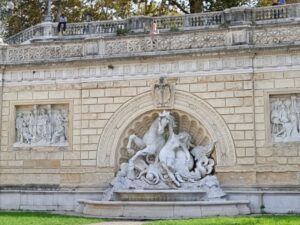
Piazzas aside, open spaces are at a premium in Bologna. Located at the northern extremity of the Medieval core, therefore the northern end of Via dell’Indipendenza, this is a bit of greenery within the city.
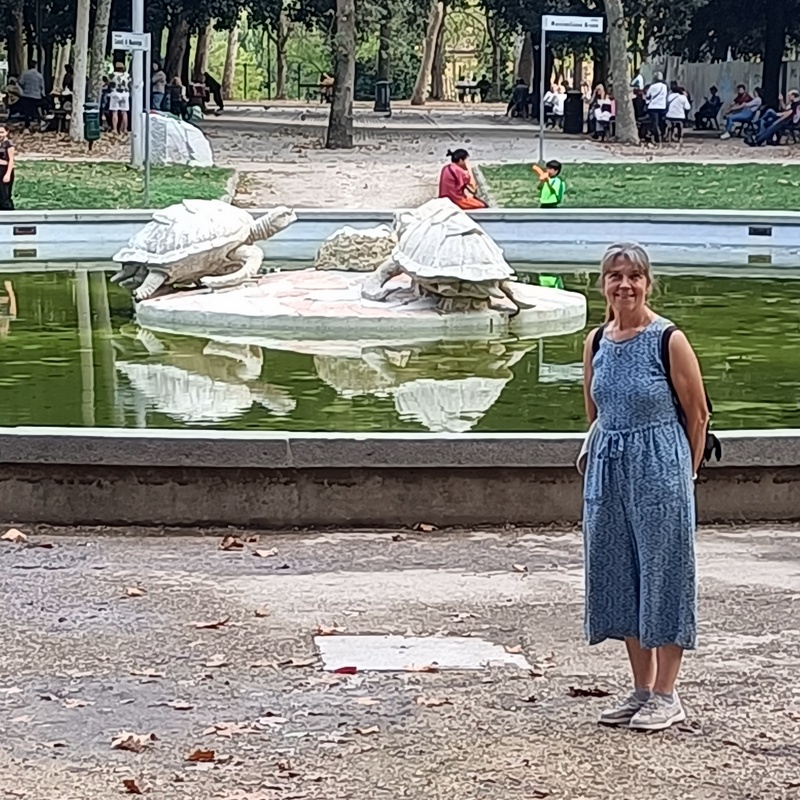 To the south, without the city walls, lies Giardini Margherita Bologna, a green park. If those were goldfish in the pond, they must be the largest ever seen.
To the south, without the city walls, lies Giardini Margherita Bologna, a green park. If those were goldfish in the pond, they must be the largest ever seen.
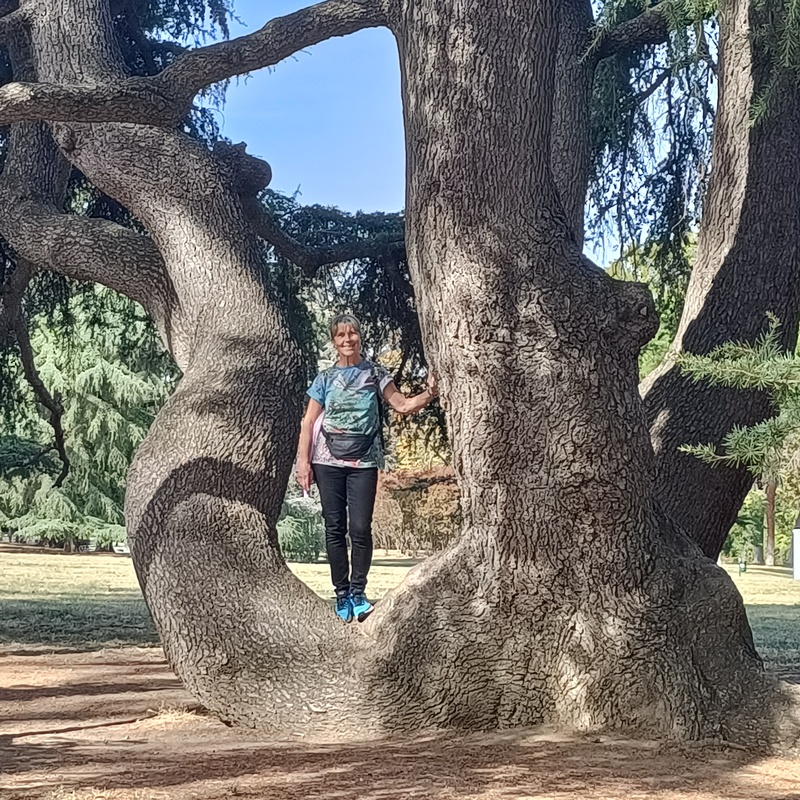 Bologna, the Craft Beer Capital of Italia, is how friends have described this city. A well defined list of venues to visit was to hand prior to arrival. All were checked out. In addition to these are many bars serving the fayre of the twentieth century, mainstream Deutsche Bier is aplenty.
Bologna, the Craft Beer Capital of Italia, is how friends have described this city. A well defined list of venues to visit was to hand prior to arrival. All were checked out. In addition to these are many bars serving the fayre of the twentieth century, mainstream Deutsche Bier is aplenty.
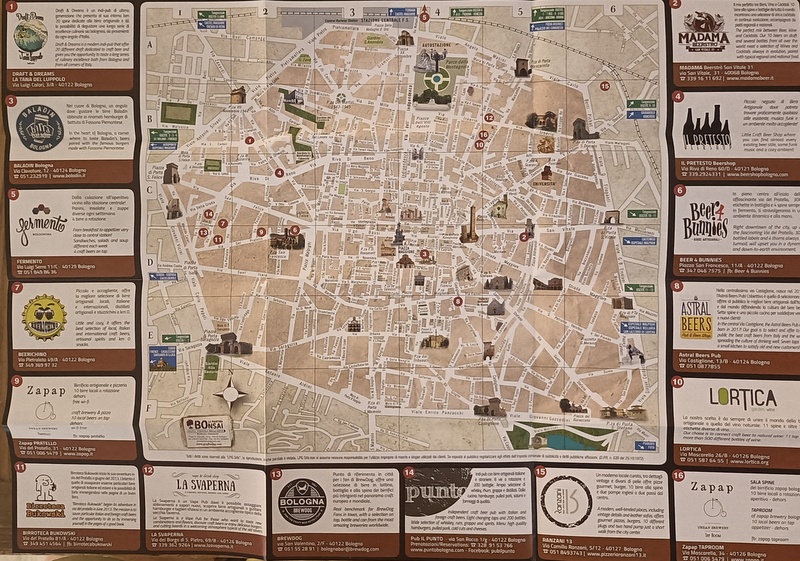 Craft Beer Bars visited:
Craft Beer Bars visited:
Birroteca Bukowsky Birreria Bologna – Via del Pratello 81a, 40122 Bologna
il Punto – Via S. Rocco 1g, 40122 Bologna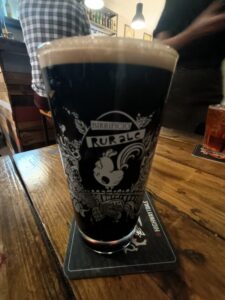
Beerichino – Via Pietralata 49a, 40122 Bologna
Beer for Bunnies – Piazza S. Francisoco, 11a, 40122 Bologna
Baladin Bologna – Via Clavature, 12, 40124 Bologna
Astral Beers Pub – Via Castiglione, 13b, 40124 Bologna
Birreria Popolare – Via dal Luzzo, 4a, 40125 Bologna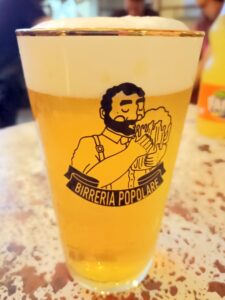
Madama Beerstrò – Bologna – Via S. Vitale, 31b, 40125 Bologna
LOrtica – Via Mascarella, 26b, 40126 Bologna
Zapap Taproom – Via Mascarella, 34b, 40126 Bologna
Bars visited
Mutenye – Via del Pratello 44a, 40122 Bologna
Spiller – Via Zamboni, 26, 40126, Bologna
Empire English Pub – Via Zamboni, 24a, 40126 Bologna
Restaurants visited:
Trattoria Baraldi – Via Pietralata 40d, 40122 Bologna
il Calice – Via Clavature, 13a, 40124 Bologna
051 Cibo e Passione – Via Pescherie Vecchie, 6, 40124 Bologna
Mirch Masala – Via Federico Venturini, 4, 40126 Bologna
Tikka Point (Desi Nasha) – Via Federico Venturini, 8a, 40126 Bologna
Gujranwala Restaurant – Via Alessandro Tiarini, 19f, 40129 Bologna
Coffee stop:
Caffè Terzi Bologna – Via Guglielmo Oberdan, 10d, 40126 Bologna
